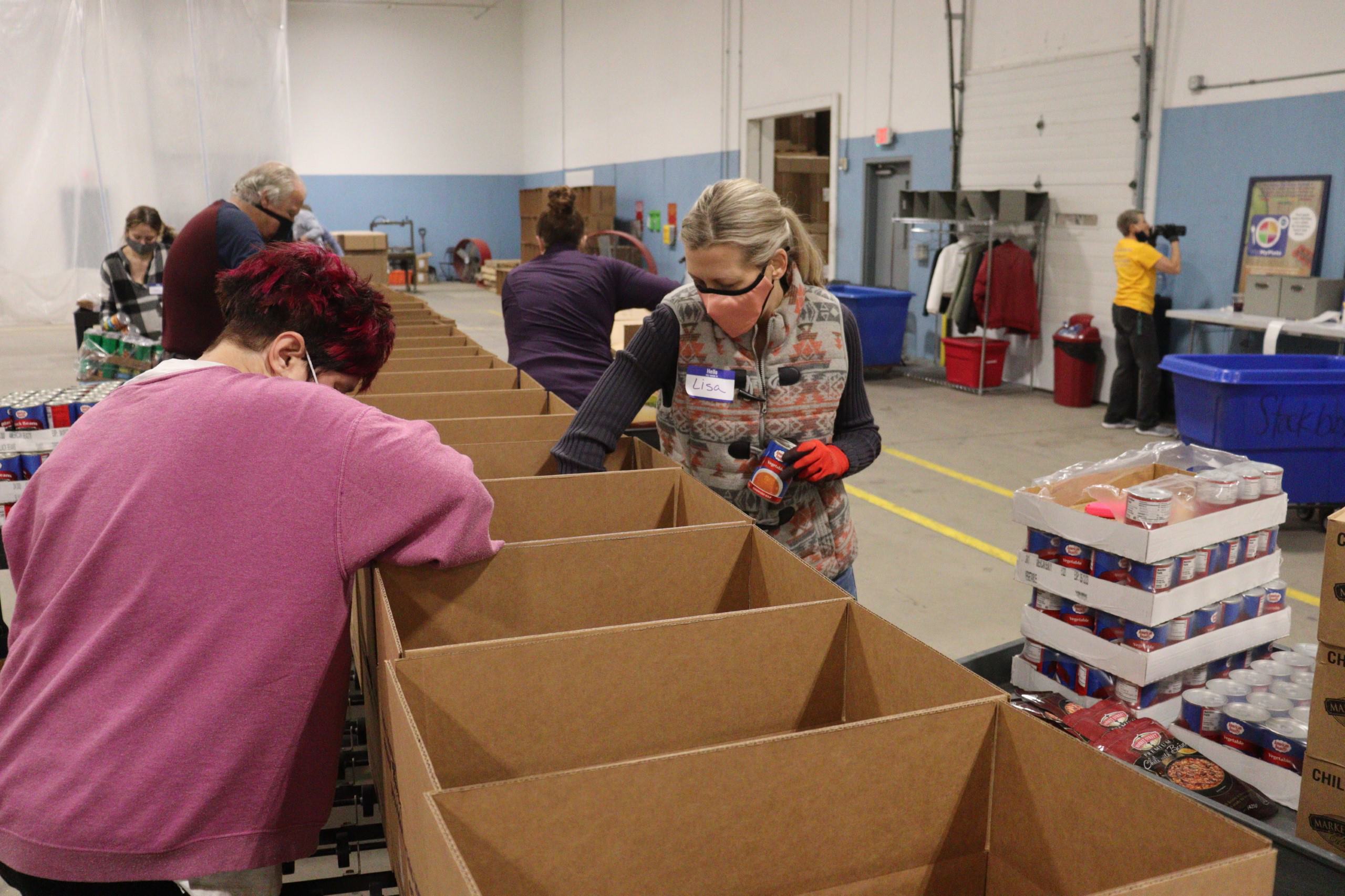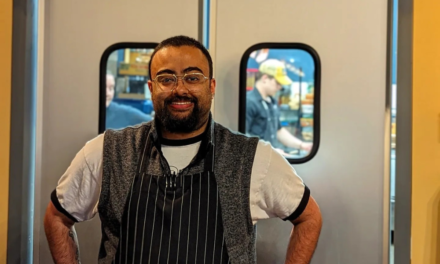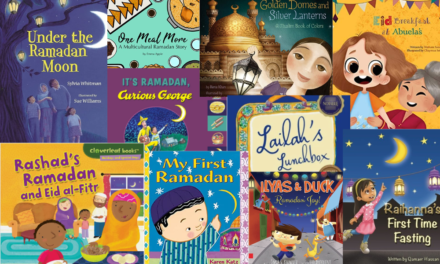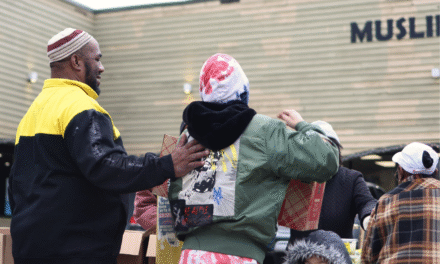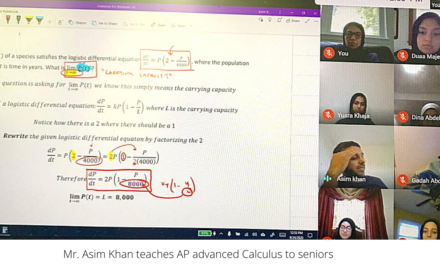Hunger Task Force joined with Hanan Relief Group and Milwaukee Muslim Women’s Coalition to provide culturally appropriate food to relocated Afghans.
When Afghans arrived in Milwaukee in October and November, the first question on their minds was how to feed their families. They didn’t know the cost of bread, much less how to find a grocery store or how to get there. They had no cars, no driver’s licenses, no knowledge of how the bus system worked, and no ability to speak or understand English.
Hunger Task Force, Hanan Refugee Relief Group and Milwaukee Muslim Women’s Coalition collaborated to solve that problem, giving Afghan families emergency food boxes filled with ingredients they used back home in Afghanistan.
The first 120 food boxes were delivered Thursday to 65 families. (Large families received two boxes). The boxes were filled with rice, lentils, garbanzos, oil, spices, canned vegetables, garlic, nuts and dried fruit, including dates.
“Every family really appreciated the boxes,” Sheila Badwan, the lead of Hanan Refugee Relief Group’s Milwaukee chapter, who organized the distribution of the food boxes. “They were overwhelmed, so very thankful.”
The three organizations are preparing to meet the needs of 500-600 people expected to relocate to Milwaukee County in the coming months. They will need culturally appropriate emergency food boxes to fill the gap until they can be registered for the State of Wisconsin’s Food Share Program.
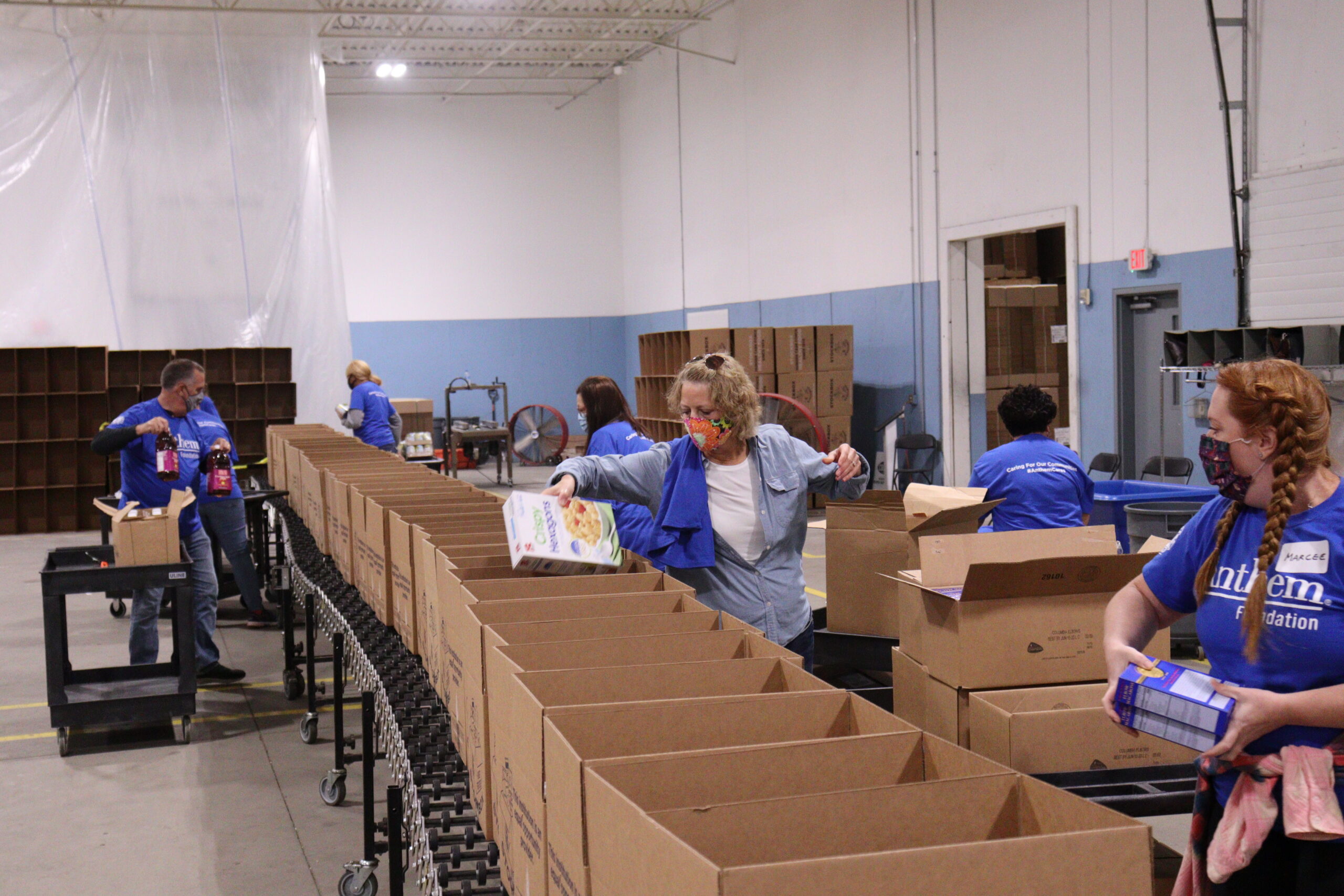
Hunger Task Force welcomes donations of items for Afghan families’ food boxes, including rice, lentils, olive oil, garlic, halal meat, fresh produce, and Middle Eastern spices.
Giving people what they want
Before the pandemic, “people could visit our food pantry and choose food that worked for them,” explained Sherrie Tussler, executive director of Hunger Task Force, in an interview Monday. “People selected things that make them happy. Now they can’t.
“We believe in the clients having a choice,” she continued. “We think this brings dignity to people. My dad always said, ‘If you are hungry, you’ll eat anything,’ but I didn’t always want what we were having. It doesn’t mean you’re going to like it.
“And if your religion dictates what is acceptable, that’s pretty important,” she added. Most of the Afghan evacuees are Muslim and eat halal meat, for example.
“What we need to do is just listen,” she said. “It is not just a matter of taste but of religion and culture.”

Culturally appropriate food boxes were delivered Thursday to 65 Afghan families who were relocated from Ft. McCoy to Milwaukee.
The sudden influx of families from Afghanistan
America’s 20-year war in Afghanistan officially ended in August, followed by a rapid withdrawal of U.S. armed forces. The U.S. government worked to evacuate the more than 20,000 Afghans (with their families) who worked with U.S. troops and diplomats, journalists and contractors as interpreters, drivers, cultural advisors and more.
Ft. McCoy, a U.S. Army base in western Wisconsin, was one of three places in the nation that received a portion of 22,000 Afghan evacuees in September. It temporarily housed more than 10,000 evacuees in early Fall.
Milwaukee Muslim Women’s Coalition gained permission in October, with the assistance of U.S. Rep. Gwen Moore (D-Wis.), to check on the condition of the Afghans on the base. After the tour with Moore and Rep. Ilhan Omar (D-MN), MMWC and Hanan Refugee Relief Group collected and delivered donations of new, culturally appropriate clothes, prayer rugs, Qurans and other items. They also provided guidance to Ft. McCoy’s leadership on religiously and culturally appropriate food for the Afghan guests.
Both MMWC and Hanan monitored the situation of the Afghans and prepared to assist them as they relocated to Milwaukee County. The Afghan families began arriving to Milwaukee in mid-October. More families are expected in the coming months.
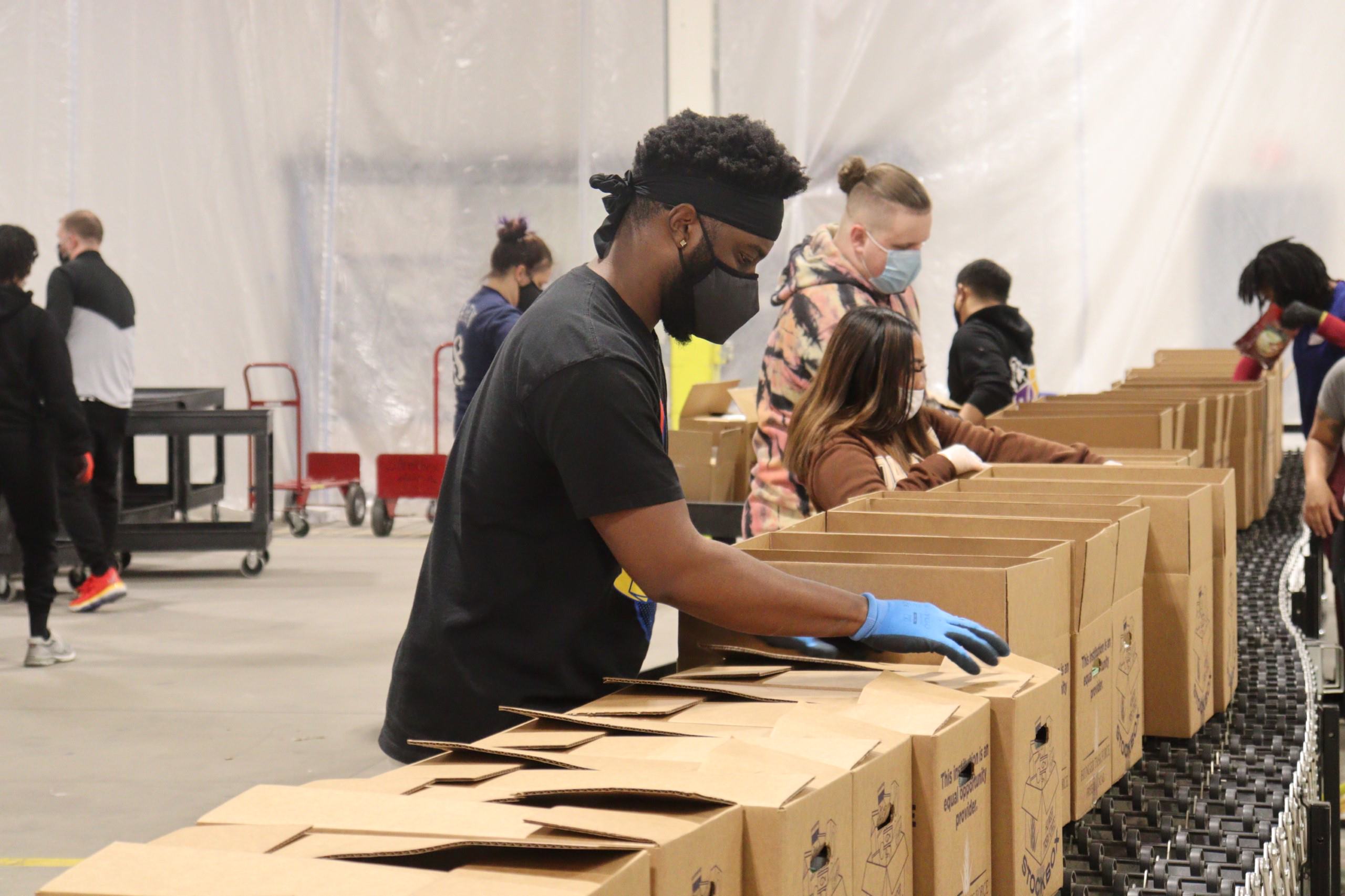
Joining the team
Hunger Task Force was already in conversation with MMWC about offering food boxes customized with culturally and religiously appropriate food for clients of Our Peaceful Home, MMWC’s domestic violence services for Muslim families.
Tussler subscribes to the Wisconsin Muslim Journal and has been following MMWC’s work with Wisconsin’s Afghan guests. She read about their need for culturally appropriate food and thought to herself that Hunger Task Force “had quite a few products on hand that would benefit them. “We saw we could also assist,” she said.
Meanwhile, MMWC referred Hunger Task Force to Hanan Refugee Relief Group as a potential partner in the effort to help the Afghan guests. Badwan scheduled a tour of the food pantry.
Tussler told Badwan Hunger Task Force already had ¾ of the food items they needed for the Afghan families on hand. The pantry includes, “stable items.” Halal meat and fresh produce would need to be added, she said.
“We found halal meat at Holy Land grocery and, of all places, Piggly Wiggly,” Tussler said.
“How to get them to the people was another question,” she said. Since people can’t go into the food pantry because of the pandemic, Hunger Task Force has been utilizing Door Dash to deliver boxes for low-income people in Milwaukee, a service United Way has made available during pandemics. Badwan advised that would not work with the Afghan families Hanan is serving.
The end result: Hunger Task Force’s food bank creates the food boxes and Hanan Relief Agency is responsible for distribution. Hanan contracted the Dawah Center to deliver the boxes. The Dawah Center made the run with its 40-foot truck and driver.
Hunger Task Force has also been customizing culturally appropriate food boxes for the Hmong community through a collaboration with the Hmong American Friendship Association and the Hmong American Peace Academy.
“My guess is that when other groups of people find out that culturally appropriate food boxes are an option, they will be interested,” Tussler said.
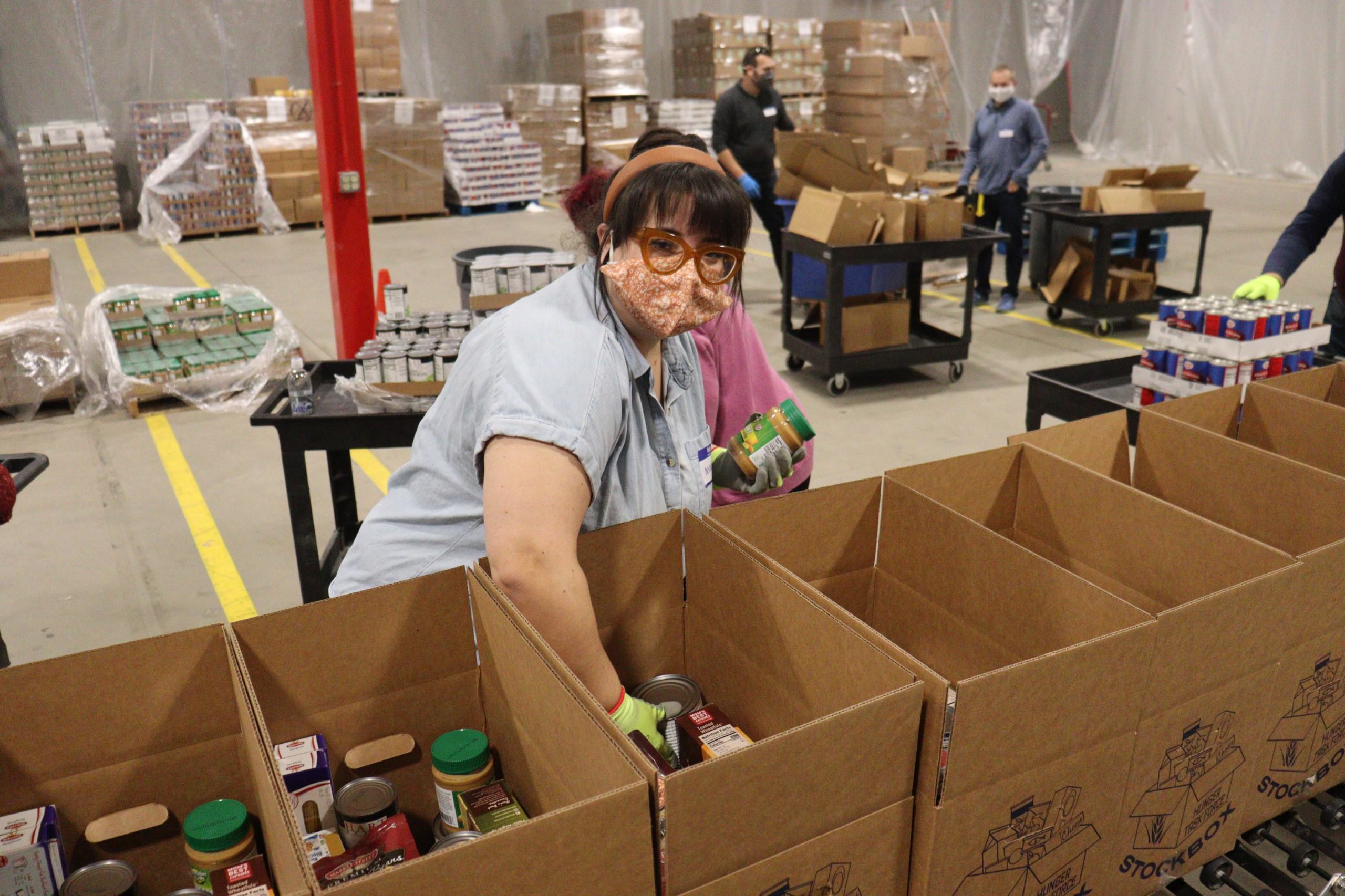
Mar Mar Lin , the Hunger Task Force’s Burmese-speaking FoodShare Outreach Assistant, is working with MMWC and Hanan Refugee Relief Group translators to help Afghan families sign up for Wisconsin’s FoodShare Program.
The next step
“Food boxes are emergency food, not a long-term solution. We want to get people signed up with the FoodShare Program,” Tussler said, referring to the State of Wisconsin’s food assistance program. Receiving emergency boxes is not a lifestyle.”
Hunger Task Force assigned staff member Mar Mar Lin to help people sign up for FoodShare. She can guide people through the process, Tussler said. MMWC and Hanan Refugee Relief Group will provide translators to help with the process.
“We are expecting refugees coming monthly,” Badwan said. “We are expecting a big surge of Afghans coming through February and March.
“More emergency measures will be needed until they are registered in FoodShare and can navigate the environment. “
In consultation with its partners on this project, Hunger Task Force has prepared four weeks of menus, each different from the other. “They have great quality produce and other food items, and they are willing to customize,” Badwan said.
“It is a wonderful program,” she added. “I am surprised no one in the Muslim community has had this program before.
People in the community who want to help may donate culturally appropriate foods to Hunger Task Force for use in this program.
